Royal family: Prince Andrew interview suggests Queen is losing her grip on The Firm
In little more than a month two TV interviews have shaken the royal family and raised the question of who, if anyone, is in charge.

The third series of The Crown began on Netflix over the weekend with Olivia Colman as the Queen facing the challenges of the 1960s. The real royal drama, however, was being played out on news channels.
In little more than a month two dramatic interviews have shaken the royal family, raised concerns about the future of the monarchy and brought up the question of who, if anyone, is in charge at the centre of one of the country’s most important institutions.
READ MORE: ‘I think the Queen is a leftie’ | Prince Andrew’s Epstein interview sparks fake reviews, memes | Prince Andrew, again, shows poor judgment | Prince Andrew invited Jeffrey Epstein to Beatrice’s 18th birthday
In October it was the Duke and Duchess of Sussex who caused a media storm in their ITV interview with Tom Bradby. Prince Harry spoke of his intense dislike of media interest in his life and confirmed that talk of rifts with his brother were real not rumour. The duchess told of the pressure of living constantly in the spotlight and in a remark that is thought to have been a barb at the Buckingham Palace machine thanked the journalist for asking after her welfare. “Not many people have asked if I’m OK,” she said.
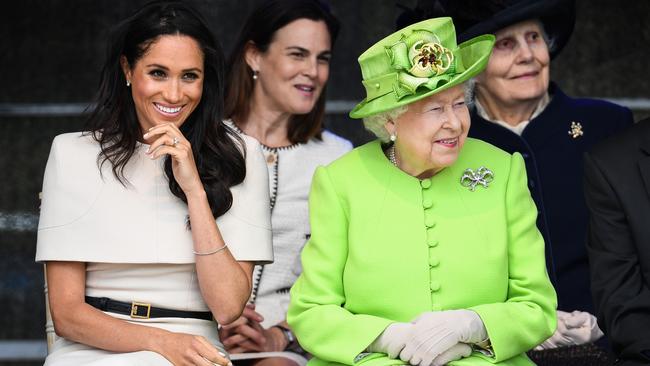
Many in the royal household felt that the Sussexes were unwise to undergo the interview and ill-advised in beginning legal action against newspapers over alleged breaches of privacy and phone hacking.
Alarm over those issues has been overtaken by horror at the Duke of York’s calamitous BBC interview with Emily Maitlis. “Not so much a car crash but an articulated lorry crash,” the former royal press secretary Dickie Arbiter said.
The official line from Buckingham Palace emphasises that the decision to agree to the Newsnight special was a personal one by Prince Andrew. The Queen, however, approved that decision. One former royal aide said: “The Queen indulges Andrew. He was her favourite and the fondness persists”.
The Queen, at 93, remains a very active head of the family. She deals with a box of state affairs every day and, senior figures say, “nothing happens without her knowledge and approval”.
Her age is a factor, however, as is that of the Duke of Edinburgh, who was “the disciplinarian in the family” but at 97 is no longer able to play that role.
Increasingly the functioning of the household depends on the Prince of Wales, his principal private secretary, Clive Alderton, and the Queen’s private secretary, Edward Young.
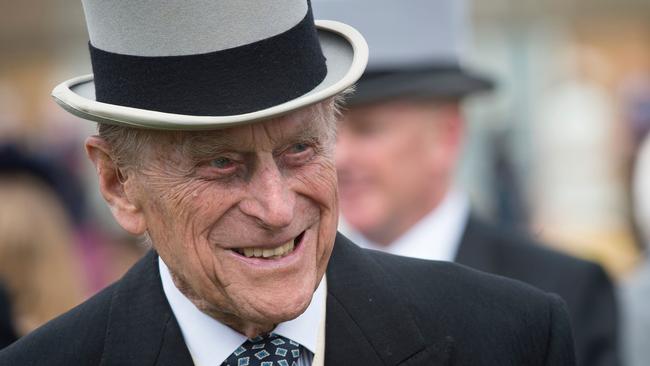
One former senior aide said on Sunday that the Queen’s private office “could have stopped the interview had they really wanted to”. Their decision to let it go ahead was, some felt, evidence of a lack of grip at the centre of “the firm”.
The Times has spoken to people with decades of experience working in or with the household. Some believe that the crises can be weathered and are in no way as serious as the annus horribilis of 1992 that included the separation of Prince Charles and Princess Diana, the end of the Duke of York’s marriage and the Windsor Castle fire.
Others are anxious about the state of affairs in these final years of Elizabeth’s reign and attribute the appearance of events “spiralling” beyond control to the departure of Lord Geidt, the Queen’s previous private secretary in 2017. Lord Geidt was “eased out” after meeting stiff internal opposition to his attempts to centralise the structure of the royal household, reducing the autonomy of Clarence House and Kensington Palace and strengthening the leadership of Buckingham Palace.

“Geidt had a smart idea but it was never going to work,” one supporter of Prince Charles said. “If the future of the monarchy was to be shaped that had to be done by the Prince of Wales as the future monarch and not by Buckingham Palace. The strategy misunderstood the fact that the three key royals, Charles, William and Harry, wanted a large degree of independence.
“It has to be remembered that this is a family and a court not a corporation.”
The failure of the Geidt plan left a system said by one aide to be collegiate and described by another as federalist. A former official is more blunt: “Each household operates in its own silo.”
One insider dismissed that criticism and defended the “harmonious” working relationship Lord Geidt’s successor had with Prince Charles’s team. He said: “Edward Young gets a bad press sometimes because he’s not Geidt, who was more clubbable and well connected. Edward just gets on with the job. He handled the prorogation [of parliament] really well: there was no blame attached to the Queen for any of that.

“The attempt to merge the households went badly wrong: trying to dictate and force change caused a lot of upset. Now it is happening gradually and organically. The finance and HR teams in the royal household are merging and it all continues to function well.”
If those back office departments are running smoothly those in the front line of the royal family’s relationships with the press are having a torrid year.
After a period dominated by positive stories of royal weddings and babies, 2019 began with the Duke of Edinburgh’s car accident and belated apology at Sandringham. That was soon overshadowed by the public divergence between William and Harry.
Harry and Meghan championed the fight against climate change but were lambasted for taking private flights to holiday with Sir Elton John.
William and Kate, meanwhile, caught a budget airline flight to Scotland to visit the Queen at Balmoral and were pictured as the “normal family” helping their children up the aircraft steps.
The Sussexes did not go to Balmoral, a decision interpreted in some quarters as a snub, but Meghan did fly to New York to watch her friend Serena Williams in the US Open final.
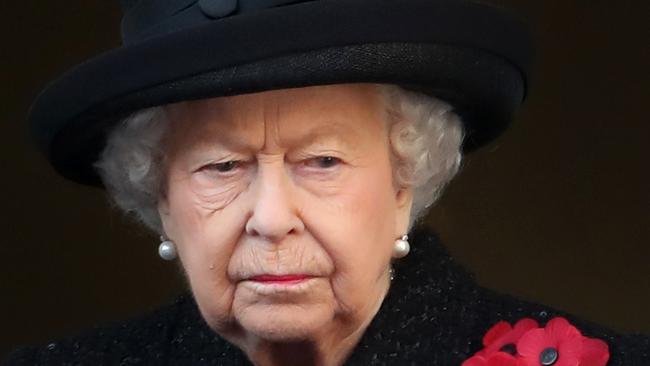
Harry’s remark that he had decided to have “two [children], maximum” for the sake of the planet was cast alongside the fact that the Cambridges have three children. The Sussexes withdrew from their roles with William and Kate’s charity to set up their own foundation.
The Sussexes’ very public falling out with the press contrasts with the friendly approach adopted by the Cambridges. When their flight was diverted by a violent thunderstorm during a tour of Pakistan last month William left his seat to check that reporters travelling with them were safe and well.
William is said to have a much better understanding than his brother that, although sometimes difficult, the relationship with the media is vital in promoting the causes that the royals value.
As recently as February 2018 the two couples had been labelled the “Fab Four” and declared themselves bonded together. Senior members of the household had advised the brothers against attempting too many engagements together and are unsurprised at the split.
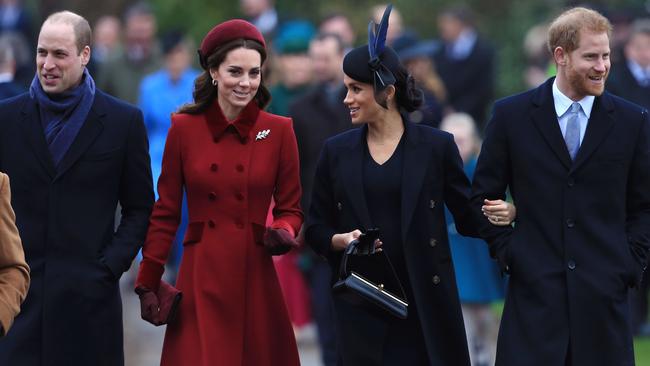
One friend and adviser insisted: “What’s happening is completely normal. Brothers get married, they have their own kids, their lives follow different paths. The spotlight is on them now because they used to be a double act.
“They are brothers who do love each other but they are very different characters. William is very cautious, takes a lot from his grandmother. He’s a natural conformist. Harry is more like his mother and father: he’s more emotional, more outgoing, more willing to take risks and because he is not likely to be king he has a lot more room to manoeuvre.”
One aide likens Harry’s situation to that faced by Andrew when he was younger and looking for a role in life as the second son who would never be king. A reluctance to accept official advice is another trait, one former aide said, that Andrew and Harry have in common: “The advice is given, but it’s not always taken.”
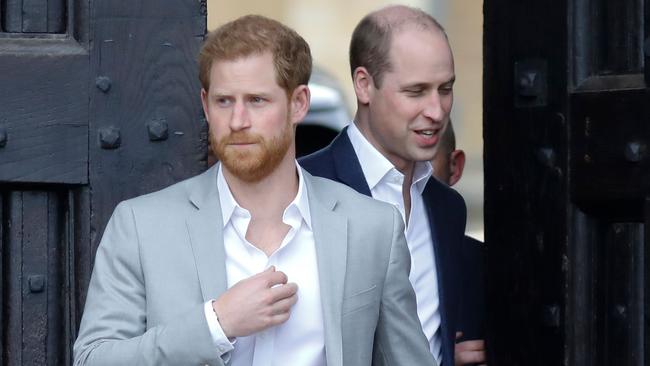
He believes that Andrew’s friendship with the sexual predator Jeffrey Epstein was an example sometimes seen in minor royals of “falling prey to the generosity of wealthy friends”.
Andrew has compounded that error of judgment by largely rejecting the advice of the palace press machinery. He is strongly supported instead by his “super loyal” private secretary, Amanda Thirsk, and remains very close to his ex-wife. The duke has also received some media advice from James Henderson, former head of the discredited firm Bell Pottinger. The PR man, a friend of the duke’s former wife, is adamant that he had no role in the Newsnight interview.

The reverberations from Andrew’s interview are likely to strengthen the resolve of Prince Charles and his advisers as they prepare for a slimmed down monarchy after he takes the throne. The prince believes that the monarchy, which the campaign group Republic claims costs £345 million per year, must deliver value for its public money.
He envisages a focus on the direct line of succession: Charles, William then Prince George, with a more limited role for the rest of the family.
William is increasingly involved in the work and decisions of the Duchy of Cornwall and aware that the reign of his father will be significantly shorter than that of his grandmother. His constitutional path is laid out.
For his brother and uncle and others on the periphery, however, the future is less clear. Limiting their roles in a slimmer monarchy makes economic sense but, as Andrew’s interview showed, the ability of semi-detached royals to do immense damage to the institution by “letting the side down” is enormous.
As they wake to another slew of damaging headlines about the prince and the paedophile this morning, senior royal officials might consider it time to replace the collegiate approach with a return to command and control.
The Times

To join the conversation, please log in. Don't have an account? Register
Join the conversation, you are commenting as Logout